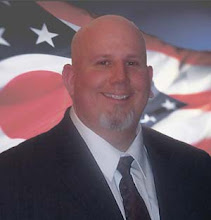As I have posted before, sometimes my most earnest work as a "self-styled, self-employed pundit" takes shape while engaged in social media banter on various topics (almost all of which has to do with politics and government).
This one is no different.
A fellow Libertarian was seeking feedback on a pair of issues when the topic landed on agricultural subsidies in the United States. One of his acquaintances kept insisting the elimination of farm subsidies would cause the price of food to go up. That is when I made the courageous decision to dive in via the comfort and safety of my keyboard.
Below is my contribution (lengthy as always) to the thread – cleaned-up a bit and made ready for primetime…
Actually, eliminating farm subsidies would steadily drive down the price of food.
Genuine farmers who receive the subsidies typically are urged by the USDA to do so for two purposes: either to literally grow less produce (typically grains) or in exchange for opting to grow particular kinds of produce.
The reason this is done is to control and moderate the price of food within our own borders. By offsetting the difference in potential revenue farmers would/could make if they were to grow the amount of crops they see fit, the federal government enjoys a much higher rate of participation in the endeavor to control food pricing.
The theory is that if food production were left to true free market forces, the price of food would potentially go up and down too dramatically for people in lower income brackets to keep up.
What this theory ignores, though, is the fact the United States overall now is producing much less food than what its true capacity for it is. This means we are exporting less food than we otherwise could and should be. That is important because by having less overall food to enter into the marketplace farmers are missing-out on foreign markets for additional revenue sources.
It's Economics 101: if farmers did not have subsidies nudging and steering them into various government-ordained agricultural endeavors, they would do what any entrepreneur would do – generate as much product as is within their capability and try to command the best market share possible.
If their overall output increases but domestic demand/consumption does not, then they need to adjust their prices lower to make their wares more competitive and appealing to consumers. This is how the price of food would go down in the abolition of agricultural subsidies. It also would in turn make food more affordable for all (and, yes, especially for poor/lower income Americans).
The farmer, on the other hand, does not take the financially crippling hit that most people would assume happens in this instance because even though the price per unit may go down the increase in total units harvested compensates for the price adjustment and balances it all out.
Next, my contention is that by encouraging lower agriculture output the way the federal government does (based on all the arguments laid-out above) this has a grotesquely negative impact on international famine relief and the worldwide fight against hunger.
Remember, if farmers are left alone to produce what they have the capacity to do, the overall supply of food increases and the price of food decreases. Not only can the average person here in the U.S. better afford food, so can those non-profit organizations which are dedicated to feeding the disadvantaged across the globe (and, of course, here at home).
Instead, we have the Nanny State in high gear manipulating our food supply and meddling with what once was the single-purest sector of the free market mankind has ever known.
Related side note
Earlier, I used the phrase "genuine farmers." This is because there are a growing number of subsidies being offered at the federal, state, and local levels for activities that go well beyond what people typically envision as traditional farming.
In other words, government at all levels is torturing the very definition of agriculture.
For example, one item which made the news earlier this year was the State of New Jersey's agriculture subsidy for honey bee farmers. The subsidy consists of a generous discount on one's property taxes for those who engage in this form of agriculture.
The problem, however, is the fact that equally as generous is New Jersey's definition of the minimum capacity to qualify for a subsidy.
It turns out that of all the people residing in rural New Jersey and taking advantage of this program, no one is making out as handsomely as multimillionaire recording artist Jon Bon Jovi – who opted to setup such a honey bee operation that meets the state minimum standards on his property.
So now, despite owning a home and plot of land worth millions of dollars Mr. Bon Jovi pays a fraction of property taxes than that of any of his surrounding neighbors – whose properties are valued much less than his.
That all sounds fair, doesn't it?
Subscribe to:
Post Comments (Atom)

No comments:
Post a Comment